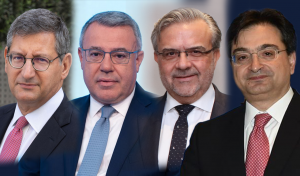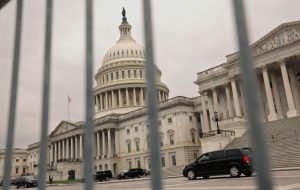European Central Bank (ECB) policymaker and governor of the Bank of Greece, Yannis Stournaras said that he was backing two interest rate cuts this year and expects further easing in 2025 as inflation continues to fall, in an interview with the Financial Times, on Wednesday.
“Even if we have one cut of 25 basis points now and another one in December, we will be back to just 3 per cent — still in highly restrictive territory,” Stournaras remarked, referring to the ECB’s main policy rate.
He further added that inflation could be on track to meet ECB’s 2% target in the first half of 2025, stressing the need for policymakers to reduce the “highly restrictive” interest rates more quickly than previously anticipated.
He added that inflation was falling faster compared with the ECB’s Sept. forecast.
He advocates for two rate cuts of 25 basis points each before the year’s end, with the first expected at next week’s ECB Oct. meeting and the second in Dec., as recent data on economic activity and inflation has been better than expected.
This indicates that investors predict a steady decline in rates from record highs taking cues from weak economic growth and faster-than-expected easing in inflationary pressures.
“If inflation continues the downward path towards the 2 per cent target, why not cut in every meeting?” Stournaras told the FT.
Last week, ECB President Christine Lagarde gave the strongest hint yet that an Oct. rate cut was on its way. Given that fact, expectations are that rates could fall to around 1.7% in the second half of next year.
According to Stournaras, only few on the 26-member Governing Council have pushed back regarding the Oct. rate cut, as most policymakers are looking at the same data indicating a trajectory toward the 2% inflation target by mid-2025 or possibly earlier.
However, he cautioned that failing to adjust could significantly harm the economy and undermine inflation targets, risking a return to very low inflation, a scenario that no one desires.
While the ECB may need to accelerate monetary policy easing, Stournaras stated that the central bank is not already behind the curve, advocating for gradual action amid significant uncertainty. “No one knows what will happen tomorrow,” he warned.







